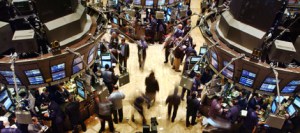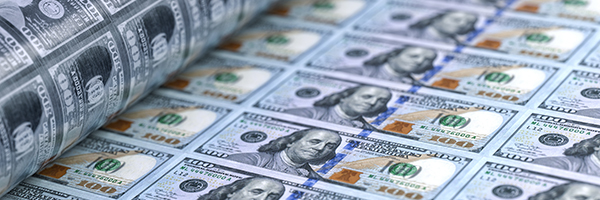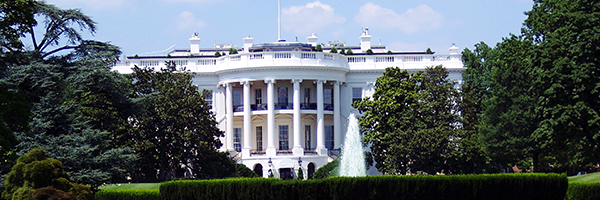
May 22, 2025 | Daily JAM, Morning Briefing |
OPEC+ members are discussing making a third consecutive oil production surge in July, Bloomberg reported today. The cartel will make the decision at its June 1 meeting.
West Texas Intermediate crude fell another 1.30% on the futures market today to $60.77 a barrel. On January 15, the futures traded at $80.04 a barrel.

May 22, 2025 | Daily JAM, Short Term, Videos |
Today’s video is Are We Too Complacent About Complacency? The market seems extremely relaxed right now, even though it probably shouldn’t be. Moody’s recently downgraded U.S. debt, yet the market barely reacted—in fact, stocks even ticked up slightly. Then, Jamie Dimon, JPMorgan CEO, warned about rising risks—geopolitical tensions, inflation, tariffs—but the S&P 500 only dipped a tiny bit, and the VIX (the “fear index”) stayed stubbornly low. Even stranger, investors are piling into more risk—-SPACs (remember those?) are suddenly back in fashion, and there’s a growing push to roll back financial regulations. Meanwhile, Treasury yields inched up, but overall, the market is acting like nothing’s wrong. Are we being too complacent? It sure seems that way. Some investors might be hedging quietly, but the broader market just keeps charging ahead like everything’s fine and I don’t think it is.

May 21, 2025 | Daily JAM, Morning Briefing |
Target’s cut in guidance for the remainder of 2025 is another worrying sign that U.S. consumers are pulling back. Today’s earnings report from Target (TGT) was never going to look pretty. The company was certain to report some drop in revenue as a result of customer boycotts after it scaled back diversity, equity and inclusion initiatives early this year following criticism by the White House and conservative activists. But the news that really hurt the stock was that Target had cut its forecast for earnings for the full year.

May 19, 2025 | Daily JAM, Morning Briefing |
The Standard & Poor’s 500 closed up 0.09% today, May 19. The NASDAQ Composite edged up .02%. The yield on the 10-year U.S.treasury actually fell 3 basis points to 4.45%
Yep, as far as the financial markets were concerned, Friday’s downgrade of the U.S. credit rating by Moody’s Investors Service was pretty much a non-event. I can understand that reaction. Mostly.

May 17, 2025 | COST, Daily JAM, Short Term, WMT |
Look for a flood of earnings news from retailers. After last week’s guidance from Walmart (WMT) that it would be raising prices because if the Trump tariffs, investors–and the Federal Reserve–will be waiting to see if retailers without Walmart’s pricing and logistics clout will paint an even more dire picture on price increases–and thus future inflation.

May 16, 2025 | Daily JAM |
Yesterday, Friday, May 16, Moody’s downgraded the United States’ credit rating from the highest Aaa rating to one notch below at AA1. This downgrade means the United States no longer maintains a triple A rating from any of the three major credit rating companies. Standard & Poor’s downgraded the United States in 2011. Fitch Ratings issued its downgrade in 2023.

May 16, 2025 | Daily JAM |
Remember all those tariff negotiations that were supposed to take place during the 90-day pause of the April 2 higher global tariffs Not going to happen in most cases.

May 16, 2025 | Daily JAM |
Today, the GOP-controlled House Budget Committee voted to reject the Trump Administration’s Big Beautiful Bill, which includes President Donald Trump’s $4.5 billion tax cut. The committee voted 16–21 against advancing the bill, with five conservative Republicans joining all Democrats in opposition. These Republicans voted against the bill because it failed to cut enough from spending and would add more that $2.5 trillion to the Federal debt over the next 10-years. Republican supporters in swing districts, on the other hand, argued that deeper cuts to safety net programs such as Medicaid would send the party to defeat un the 2026 mid-term elections.

May 16, 2025 | Daily JAM, Morning Briefing |
Maybe Wall Street and the Federal Reserve are still cranking the numbers to see the effects of the Trump tariffs on U.S. inflation, but consumers have apparently already made up their minds. A big increase in expectations for future inflation was key in driving today’s drop in preliminary May Consumer Sentiment Index from the University of Michigan to 50.8 from 52.2 a month earlier. That reading was the second lowest on record and lower than all but one estimate in a Bloomberg survey of economists.

May 15, 2025 | Daily JAM, Short Term, VIX, Volatility |
The CBOE S&P 500 Volatility Index (VIX) dropped another 4.24% today to 17.84. I think, once again, the financial markets have become way too complacent about risk. And so it’s time to buy Call Options on the Vix “fear index,” betting that at least one of the many potential volatility events on the horizon puts some fear back into the markets.

May 15, 2025 | Daily JAM, Morning Briefing, WMT |
Walmart warned Thursday that price increases look certain–possibly within weeks–even after President Donald Trump announced a deal to reduce tariffs on Chinese exports to “just” 30%.
“We’re positioned to manage the cost pressure from tariffs as well or better than anyone, but even at the reduced levels, the higher tariffs will result in higher prices,” Walmart chief executive Doug McMillon said

May 14, 2025 | Daily JAM |
The dollar erased this week’s gains on speculation that the Trump Administration favors a weaker dollar and will make promises to let currencies appreciate part of any trade deal with the United States.














